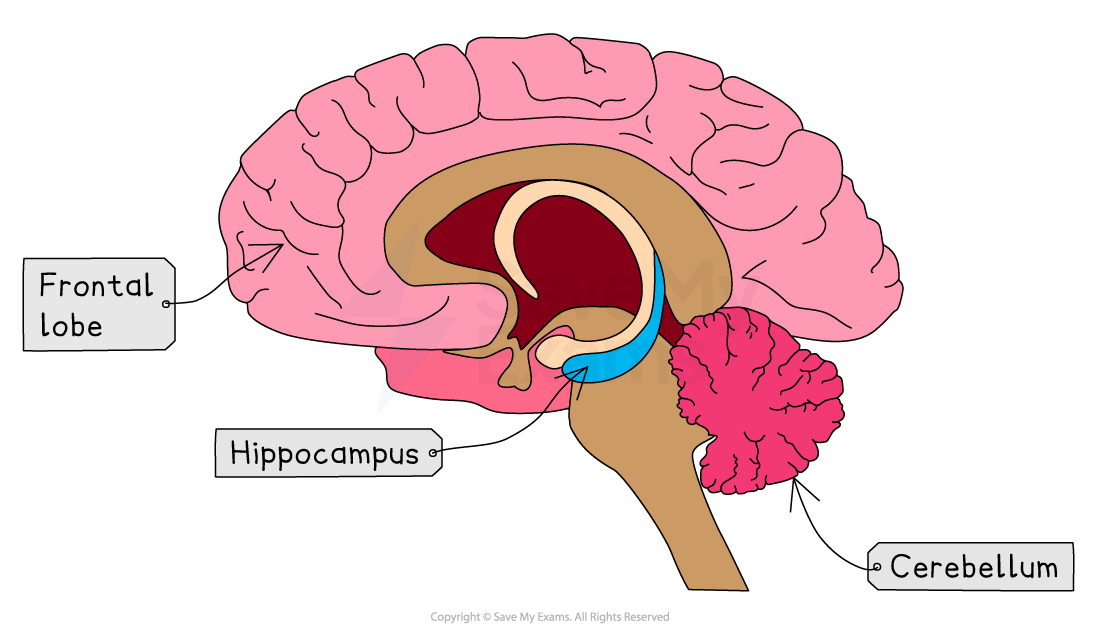Structure & Functions of the Brain (OCR GCSE Psychology): Revision Note
Exam code: J203
Neurological damage & memory
Cognitive psychologists study how different parts of the brain contribute to memory formation, storage, and retrieval
Brain damage from injury, disease, or illness can result in amnesia, affecting different types of memory depending on which brain area is damaged
Hippocampus damage can lead to anterograde amnesia (can’t form new memories)
Frontal lobe damage can lead to retrograde amnesia (can’t recall memories)
Cerebellum damage can lead to procedural memory problems (difficulty with skills and coordination)

Anterograde amnesia & retrograde amnesia
The role of the hippocampus
The hippocampus, located in the temporal lobe, plays a key role in forming new memories
It is responsible for processing semantic (facts and knowledge) and autobiographical memories (personal experiences)
The hippocampus is part of the limbic system, which links emotions and memory
New information must pass through the hippocampus before it is transferred to long-term memory
Hippocampus and anterograde amnesia
Anterograde amnesia is the inability to form new long-term memories after brain damage
It occurs when information cannot pass from short-term memory to long-term memory due to hippocampal damage
People with this condition can hold a short conversation, but once distracted, they forget it
Classic examples show that while these individuals cannot form new declarative memories, they can still form new procedural memories, suggesting other brain areas (like the cerebellum) are involved
The role of the frontal lobe
The frontal lobe acts as the brain’s “control centre”, managing planning, organisation, and decision-making
It is also involved in retrieving stored memories
Frontal lobe and retrograde amnesia
Retrograde amnesia is the loss of memories from before an injury or illness
Damage to the frontal lobe disrupts access to long-term memories — people cannot recall past events or experiences
Research (e.g. Mayes, 1986) found that damage to this area is linked with retrograde amnesia, especially in Alzheimer’s disease patients
This shows that the frontal lobe is crucial for the retrieval rather than the storage of information
The role of the cerebellum
The cerebellum, located at the back of the skull
It coordinates movement and balance and is vital for procedural memory
Procedural memory involves skills and habits such as riding a bike, playing an instrument, or knitting
The cerebellum helps time and coordinate complex movements, supporting the learning and refinement of motor skills
Cerebellum and procedural memory
Damage to the cerebellum can disrupt motor coordination and make it difficult to learn or perform skilled tasks
E.g. someone with cerebellar damage may struggle to learn to knit or play piano, even if other types of memory remain intact

Unlock more, it's free!
Was this revision note helpful?
